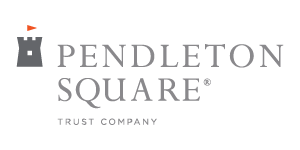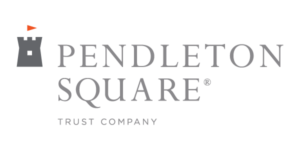A growing number of families are considering trusts as part of their estate plans. When establishing a trust now or in the future, you should carefully contemplate who will fill the role of trustee or successor trustee if you become incapacitated or pass away. The essential question is: who or what entity is best positioned to represent your intentions and family interests as a part of their daily business activity? There are several options to explore to determine the best trustee for your family, including individuals, traditional banks and independent trust companies.
WHY INDIVIDUAL TRUSTEES MAY NOT BE THE BEST OPTION
Individual trustees have a number of advantages, which may include personal knowledge regarding your family’s preferences and low to no administration fees. However, friends and relatives are not always objective, may have conflicting financial interests, and could become involved in personal disputes with beneficiaries.
Individual trustees are not audited or regulated, and are often unfamiliar with the reporting, tax and fiduciary requirements mandated in state and federal trust laws. Additionally, if an individual trustee dies, resigns or becomes incapacitated, someone else must immediately step in to take over or there could be interruption in the trust’s administration, such as missed distributions or bills paid late.
“ONE STOP SHOPPING” WITH A BANK
Banks offer a secure, regulated approach to trust administration and some families enjoy having both their trust and investment officers within the same organization. The bank model is becoming less popular, however, as clients increasingly prefer the ability to choose their own trust, tax and investment professionals to create a personalized “best in class” team.
Another potential drawback is that bank clients must adhere to the administrative and investment policies defined by the bank’s trust department, which may conflict with desired outcomes. Banks may not be comfortable managing special trust assets, such as real estate or business interests, and may only hold a list of approved investments. In addition, some bank trust departments may be more focused on investment management than personal relationships.
THE CASE FOR INDEPENDENT TRUST COMPANIES
Like banks, independent trust companies are regulated; however, their exclusive focus is on trust administration. Rather than providing investment advice and focusing on market returns, independent trustees provide personalized trust administration and serve as a part of the family’s team of advisors.
By avoiding the conflicts of interest that may arise when one entity supervises both trust and investment management, an independent-trustee model creates a natural system of checks-and-balances for you and your advisors. This also means you may retain your long-term financial advisor, while engaging an independent trustee that is based in a favorable trust jurisdiction, such as Tennessee.
Independent trustees are client-centered and relationship-focused. Trust management is their primary focus, so their technical expertise and experience often ensures a more streamlined approach to trust administration. Unlike individuals and banks, independent trustees place great emphasis on objectivity with no competing interests. They offer peace of mind by concentrating on fulfilling the intent of your trust and helping your family create your desired legacy.
CO-TRUSTEE STRUCTURES MAY PROVIDE THE BEST OF BOTH WORLDS
Some families prefer to include a family member as one trustee but add a corporate trustee for their technical expertise and reporting and record-keeping capabilities. This structure can combine the family perspective, values and intentions with the objectivity and watchful eye of a regulated entity.
Please find following a short list of questions to consider as part of your estate planning exercise:
- Who or what entity is best positioned to represent your intentions and family interests as a part of their daily business activity?
- Who or what entity will administer the trust with the most objectivity, care and precision?
- Which structure will best allow you to best pursue your personal and trust investment objectives?
- Which of your trustee options has the technical support and expertise to fulfill the fiduciary responsibilities surrounding your trust?
- Is oversight of your trustee by regulators and auditors important? What about insurance, dual control and institutionalized policies and procedures?
- Which of your trustee options is capable of consolidating and reporting on all of your trust’s assets (including closely-held shares, partnerships, real estate, mineral interests or life insurance)?
To determine if an independent trustee may be the right choice for your family, please contact us to speak with one of our relationship managers.



